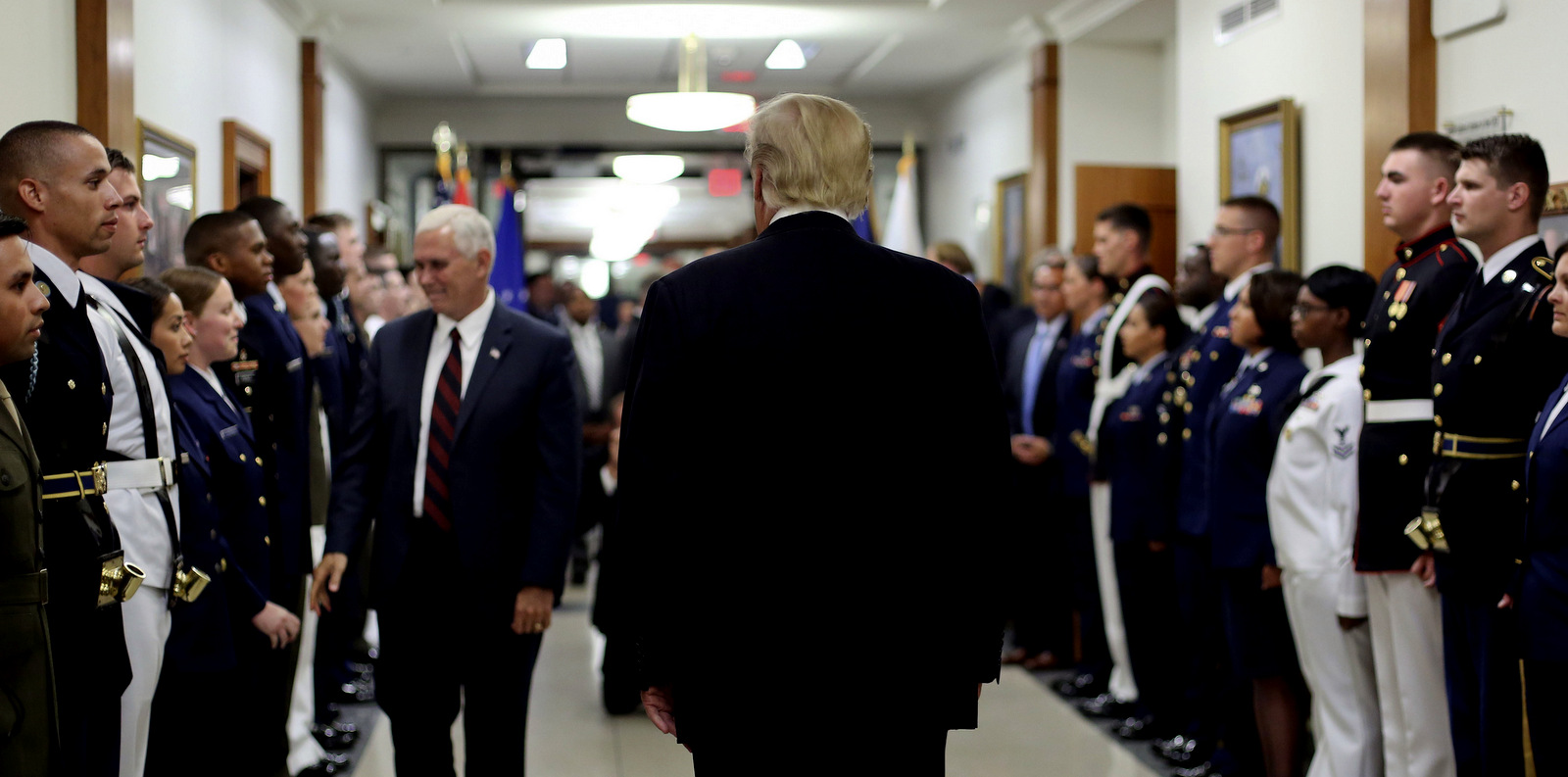As the 17-year-old War on Terror rages on—and with the international community still reeling from the illegal missile strikes that the U.S., U.K., and France launched on Syria over the weekend—Congress is considering a measure that critics warn will expand the executive branch’s authority to wage war.
Some lawmakers have tried for years to replace the 2001 Authorization for Use of Military Force (AUMF) that has been used (pdf) by three administration to justify military actions across the globe. Now that President Donald Trump has repeatedly ignored reminders that only Congress can approve attacks not covered by the authorization, Sens. Bob Corker (R-Tenn.) and Tim Kaine (D-Va.) plan to introduce a new AUMF that could give even more war powers to the president.
The new #AUMF bill is dangerous. It would only serve as an extension of #endlesswar around the world. https://t.co/TIdoukZyTx
— FCNL (Quakers) (@FCNL) April 14, 2018
Christopher Anders, deputy director of the ACLU’s Washington legislative office, explained that under the proposed AUMF described in reports on Monday, Trump would essentially “get a blank check from Congress to go to war virtually anywhere on the planet.”
Outlining his concerns with various aspects of the proposal, Anders concludes it “would cause colossal harm to the Constitution’s checks and balances, would jeopardize civil liberties and human rights at home and abroad, and would lead to a breathtakingly broad expansion of war without meaningful oversight.”
Sign this petition to tell Congress not to support the proposed AUMF. Our Constitution creates a system of checks and balances to avoid this exact situation. https://t.co/JaVNKqu455
— ACLU of Florida (@ACLUFL) April 16, 2018
Sen. Chris Murphy (D-Conn.) told NBC News that he worries “about an AUMF that is more permissive than what the president currently interprets his authority to be,” adding: “It’s gonna be hard for me to support something that has no sunset and no geographic limitation.”
Columbia Law School professor Matthew Waxman, a former national security official in the George W. Bush administration, said that an AUMF without an expiration date will bolster concerns among those who fear that greenlighting a new measure “entrenches an indefinite war.”
“The political reality, though, is that a much more restrictive AUMF won’t be possible anytime soon,” Waxman said, “and we’ll be engaged in an indefinite war either way.”
Reports about the new AUMF—which could be introduced as early as Monday—follow Kaine’s controversial comments to “CBS This Morning” earlier in the day.
While Kaine sharply criticized the attack on Syria as an “illegal military act,” the senator also said he would have “likely” supported it if Trump had asked for permission from Congress first.
Tim Kaine on the Syria strike: “This is an illegal military act. It’s one that I would likely support if he brought it to Congress. We have a president not a king and the constitution says it’s congress that gets to declare war not the president.” (CBS) pic.twitter.com/5Tk7LgWawW
— Kyle Griffin (@kylegriffin1) April 16, 2018
Some lawmakers, such as Rep. Barbara Lee (D-Calif.)—a long-time critic of the 2001 AUMF and the only member of Congress to vote against it—swiftly condemned Trump’s weekend attack, but many more were criticized for their apparent indifference or tempered responses to Trump’s unconstitutional act.
Listen to antiwar U.S. Congresswoman @RepBarbaraLee on Trump's Syria strikes, U.S. defense spending and the "continuation of the war machine", on the latest episode of #Deconstructed:https://t.co/uvLwBU29eZ pic.twitter.com/5ZhqhAIDnY
— Mehdi Hasan (@mehdirhasan) April 16, 2018
Top Photo | President Donald Trump and Vice President Mike Pence greet military personnel during a visit to the Pentagon, July 20, 2017. (AP/Pablo Martinez Monsivais)
![]() Common Dreams is licensed under a Creative Commons Attribution-NonCommercial-ShareAlike 3.0 International License.
Common Dreams is licensed under a Creative Commons Attribution-NonCommercial-ShareAlike 3.0 International License.


